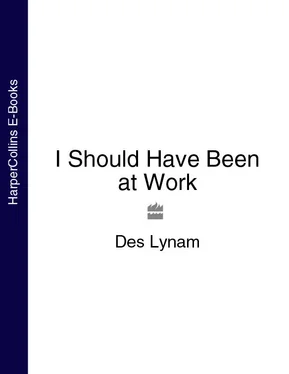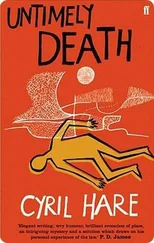1 ...6 7 8 10 11 12 ...18 When Dick Scales arrived at the Games, he spent the first few days in Munich moaning about everything. He didn’t like the place, hated the food and had been given an impossible task, etc. Then we went to the Games village and as we entered, a group of female interpreters approached. ‘I think I may get to like it here after all,’ said Scalesy. He certainly did. He married one of them a year or two later and I was his best man.
The story of the Munich Olympics is well documented. Mary Peters won her marvellous gold medal in what was then the women’s pentathlon. I remember Alan Minter being cheated out of a potential gold medal in the boxing when he was on the receiving end of a dreadful decision in his semi-final; and of course these were the Games of Olga Korbut, who charmed the world with her gymnastics. Then there were the seven swimming gold medals of Mark Spitz. But, most of all, the Munich Games will be remembered for the tragic killing of several members of the Israeli team by terrorists.
On the morning it happened I found myself the reporter on duty. In the course of that day I became a news correspondent, answering the questions of London-based presenters on the Today programme and World at One. Did I think the Black September movement was responsible? I was being asked by William Hardcastle, doyen of radio news presenters. It could have been the Green October movement for all I knew, but I waffled my way through and came to realise very quickly that it was more important to sound fluent than to produce any real facts. To this day I never put too much weight on those incessant two-ways by which television news programmes are mesmerised.
When I returned from the Games I was hauled before the Head of BBC Radio News. ‘Listen,’ he said, ‘you handled the terrorist story pretty well in Munich. I think you should stop messing about with sport and join the news team as a reporter. In a couple of years we’ll make you a correspondent and you’ll be off round the world covering proper stories.’
‘Like wars?’ I asked.
‘Well, that might be part of it,’ he said.
‘Thank you for the compliment,’ I said. ‘But I’m perfectly happy doing what I’m doing.’
‘I think you’re making a mistake,’ he said. In the ensuing years, not for one moment have I ever thought he was correct.
Twenty-five years later I returned to Munich for a television programme and reported from the very apartment where the tragedy had taken place. It all came back and I shuddered at both the memory and at the rapid passage of time.
I telephoned home fairly regularly from the Games but there was one period lasting about a week when my home phone was not being answered. Whenever I rang, at whatever time of the day, there was no reply. This was worrying. I telephoned my wife’s parents. What was going on, I wondered? I was told that Susan was just taking a little break and that they were looking after Patrick. This was most odd. Why had I not been told about this? When I got home I subsequently learned that Sue had fallen for someone else and was having an affair. I knew the person in question; he was an accountant. I had thought he was a friend. My marriage was over. It had lasted just seven years. Now I would be one of those ‘visiting’ fathers. Heartbreaking.
I had nobody else to blame but myself. I had been so absorbed with my new life and career, Sue and my new baby son had not received the attention they deserved. How many times have you heard of men throwing themselves into careers at a cost to their families?
I was especially guilty in Sue’s case. After Patrick’s birth in 1970, she had suffered a breakdown. It wasn’t just post-natal depression. Sue was seriously ill: for a time she became a completely different personality and had to spend some time in hospital. Baby Patrick was without his mother for the first three months of his life. How I wish that my mother had been alive to look after him. As it was, my mother-in-law did a pretty good job, but it was a desperate time. When Sue recovered, she needed my arms around her and a great deal of loving attention, but I was intrigued with my new job. I was commuting, travelling abroad, working nights from time to time, and enjoying all the social invitations that went with it. Sue had to recover her health and deal with a demanding infant, mostly on her own. It should have been no real surprise that when an affectionate arm was offered, she took it. Nonetheless, it did come as a huge shock, and she made it clear there was no way back. We had met as kids, I had been at the local boys’ grammar school, she at the girls’ equivalent. We had had some good times and she gave me my wonderful son, who remains a delight in my life. No recriminations. Had she not strayed, it is almost certain that I would have done: there were so many temptations.
The most important thing to do now was to make absolutely sure I didn’t lose touch with my son. Of course I had to preplan my visits to him, and for a time it was awkward. I missed seeing him grow up on a day-to-day basis; but as he got older we had marvellous times together and I know that to this day he remembers them as fondly as I do. We ate out together a great deal. Even as a four-year-old he was asking for parmesan cheese with his spaghetti. He had impeccable manners in restaurants and I was often complimented on his behaviour. We played table tennis and we swam.
Brighton was a great place for us to be together. We enjoyed the beach and the funfair and exploring. Like all small children, Patrick would ask those questions that stun adults. ‘Why does the sea stop coming in, Daddy?’ Pause for thought. ‘Ahem, it’s because the land stops going out.’ Four-year-old accepts answer and moves on to jumping over cracks in pavement.
Meanwhile my BBC career was expanding into areas other than sport. I had been popping up on a Radio 2 programme called Late Night Extra , reporting on the day’s sport. I had one close shave on the programme. I had adjourned to the bar after what I had thought to be my day’s work done when, having consumed about four pints of lager, I was asked by a chap called Derek Thompson, now of Channel Four racing fame, if I could stand in for him on Late Night Extra as he felt decidedly ill. Well, I did; but I shouldn’t have done and I slurred my way through the broadcast, much to the amusement of the presenter, David Hamilton.
Normally I did the job responsibly, and I seemed to interact well with whichever presenter was working on the show. Soon I was asked by the music department if I would like to introduce a new programme that would go out just after the seven o’clock news each night, appropriately called After Seven. I would do one night a week, while the likes of Michael Aspel, Michael Parkinson and the late Ray Moore would do other nights. I used to joke on air that I was the only person doing the show that I had never heard of, and soon under the guiding hand and ample bosom of a fearsome lady producer called Angela Bond, I established a new strand to my broadcasting life. It was basically a middle of the road music programme with some features included. I came up with an idea which we called ‘Monday’s Mimic’. Members of the public could win a prize for their impressions of famous figures, but they had to do it live down the telephone. Some were good, the odd professional was clearly ringing in, but we tried to avoid them because the deluded amateurs were hilarious. We had one poor chap whose ‘James Cagney’ and ‘Mae West’ were indistinguishable and we used to fall about in the studio.
In addition, having presented the sportsdesk on the Today programme I was asked if I fancied actually presenting the whole programme. I began doing this on the occasional Saturday by myself and then joined Jack de Manio, John Timpson and later Robert Robinson, as one of the weekday presenters of the show. All the while, I continued with my sports programmes. I was working flat out. Some weeks I was up at three in the morning to present the Today show, did After Seven on the Monday, plus a six-hour sports show on the Saturday. Bear in mind that I was now to all intents and purposes a ‘single’ man again. I was not exactly behaving like a monk, and the candles were being burnt not just at both ends but in the middle too. Eventually I turned down the invitation to renew my agreement with Today and got my life back on a more even keel. But being on the programme taught me a huge lesson about how to work under pressure and write lucidly and concisely in a very limited space of time.
Читать дальше












